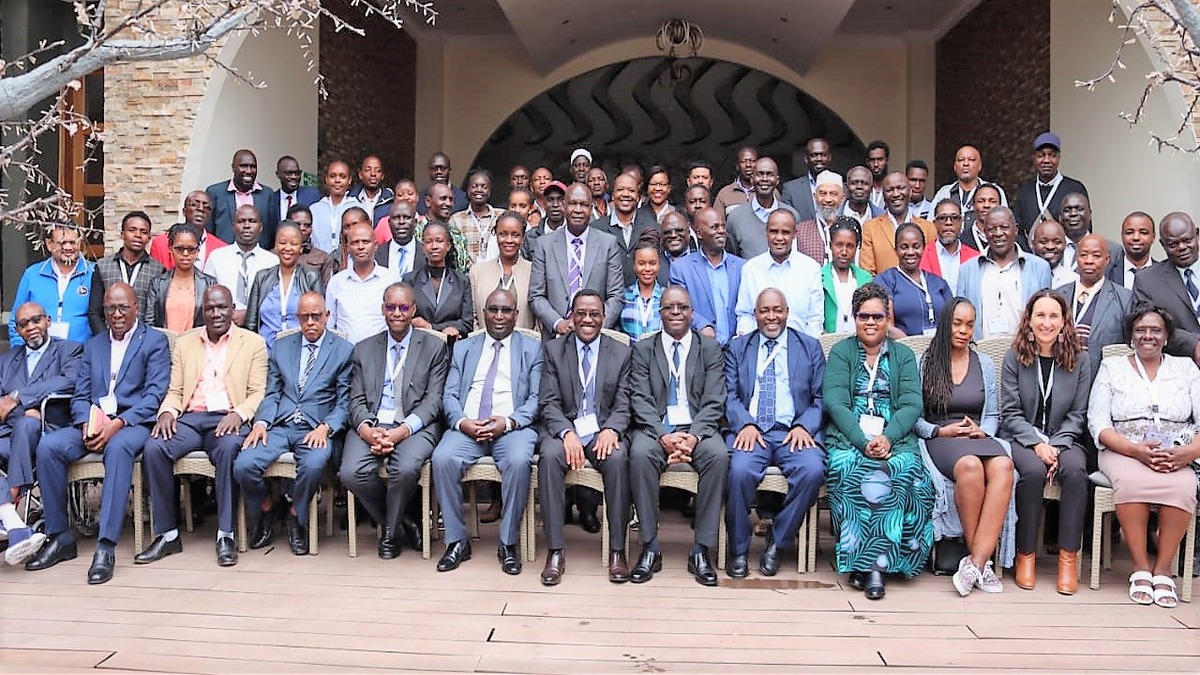
Leather is a global product, but its production results in significant amounts of pollution, which poses challenges for developing countries to address. As part of the Sustainable Manufacturing and Environmental Pollution (SMEP) programme, UNCTAD supported a two-day workshop on eco-tanning processes in Kenya and the East African Region.
The event, which brought together various stakeholders along the leather value chain, regulatory agencies, research and academic institutions, happened following a call for concepts to address tanneries pollution launched on the 4th of August, 2023 by SMEP.
The hybrid event, which took place on 17-18 August, 2023 in Nairobi, Kenya, and online, was sponsored by the UK’s Foreign, Commonwealth and Development Office (FCDO) and co-organized by UNCTAD, the Technical University of Kenya (TUK), the Kenyan State Ministry of Agriculture and Livestock Development and the Tanners Association of Kenya (TAK).
In this sense, the activity, aimed at building institutional capacities through the training of key players within the leather tanning industry, provided an inclusive platform of cooperation and coordination among stakeholders including the private sector, the Government, and academia. The two-day event focused on new eco-tanning technologies and environmental challenges associated with tanneries and the leather manufacturing sectors in these regions. Key issues discussed included innovative research focused on addressing the negative environmental impacts of the industry, in particular eco-preservation, eco-tanning technologies and novel leather manufacturing and utilization strategies, circular economic opportunities for tannery waste, governance and regulations influencing this sector especially tax incentives, sustainable environmental and occupational and health and safety laws among others for governance and international certification standards and other support mechanisms for trade and capabilities for growth in the sector.
The workshop also involved two site visits. The first visit took participants, including SMEP programme representative Ms. Elzette Henshilwood, to one of the largest tanneries in Kenya, Alpharama Limited, situated on the outskirts of Nairobi (Athi River). It is the only tannery in the country that is a member of the international Leather Working Group certified to produce and export both semi-processed and finished leather to the international market. The second site visit, which concluded the workshop, took participants to the engineering facilities of the Technical University of Kenya, where mechanical engineering and industrial spare parts production capabilities were showcased.
Discussions among participants and panelists highlighted a few key themes, which point to opportunities for intervention in this sector:
- President William Ruto’s continued emphasis on Kenya’s vision 2030 initiative which is intended to make Kenya a manufacturing nation by 2030, focuses on key manufacturing sectors to grow its collective contribution from the current 7.6% to 20% of the country’s GDP by 2030. The leather sector has been identified as one of the underperforming sectors in the Kenya Kwanza Plan, and will henceforth be the focus of future governmental support.
- A need for synergies was identified between the livestock industry and its regulatory frameworks to ensure the leather industry is supplied with quality hides and skins. This can be done through skills training to ensure better-flayed skins or modernizing flaying techniques to improve output quality.
- More attention should be focused on how to reduce illicit trade in hides with West Africa traders, which undermine the quantity of leather reaching the tanning industry and bypasses good quality standards and environmental practices.
- Difficulties to comply with the National Environmental Management Authority’s (NEMA) environmental rules was mentioned to be challenging for many tanneries in Kenya. This has negatively impacted sectoral growth and employment creation. In response, NEMA proposed to offer support and maintain continuous dialogue with the sector. In addition, NEMA also encouraged the industry practitioners to develop self-regulatory mechanisms within the tanning sector.
- A disconnect was identified between the strategic focus on growing the industry and the high import tariffs applied to chemicals and machineries needed for tanning. Participants called on the Kenya Revenue Authority (KRA) to revise their policy to keep Kenyan leather competitive both locally and globally.
- Research institutions are leading the way for innovative eco-tanning processes, traceability, biotechnology, and ways in which to extract or recycle solid waste (by-products) through innovative utilization of tannery waste and converting it into useful resources. However, these solutions are yet to be commercialised. This raises the importance of novel instruments to promote innovation entrepreneurship to establish connections between capable research institution and market needs. As stated by Dr. George Okwadha of the Technical University of Kenya ‘Waste is only waste if you waste it.’
Finally, feedback from participants was positive, with many expressing appreciation for the breadth and depth of the workshop presentations and the mix of presenters actors present. The opportunity allowed the local tanners to easily converse and interact with Government officials and the academia, in a context where such opportunities are rare. As expressed by the owner of Msai and United Tanneries Limited, Mr. Abdi Rizek, “It was a pleasure to attend this workshop supported by SMEP. I have attended more than seven sectoral workshops in the last one year and I can say that this was one of the best. We got to know a lot of people, interact with many different people in different sectors, especially Government. This event was an eye opener for the entire industry”.
The workshop was supported by the SMEP Programme, sponsored by UK-FCDO and delivered in partnership with UNCTAD.


